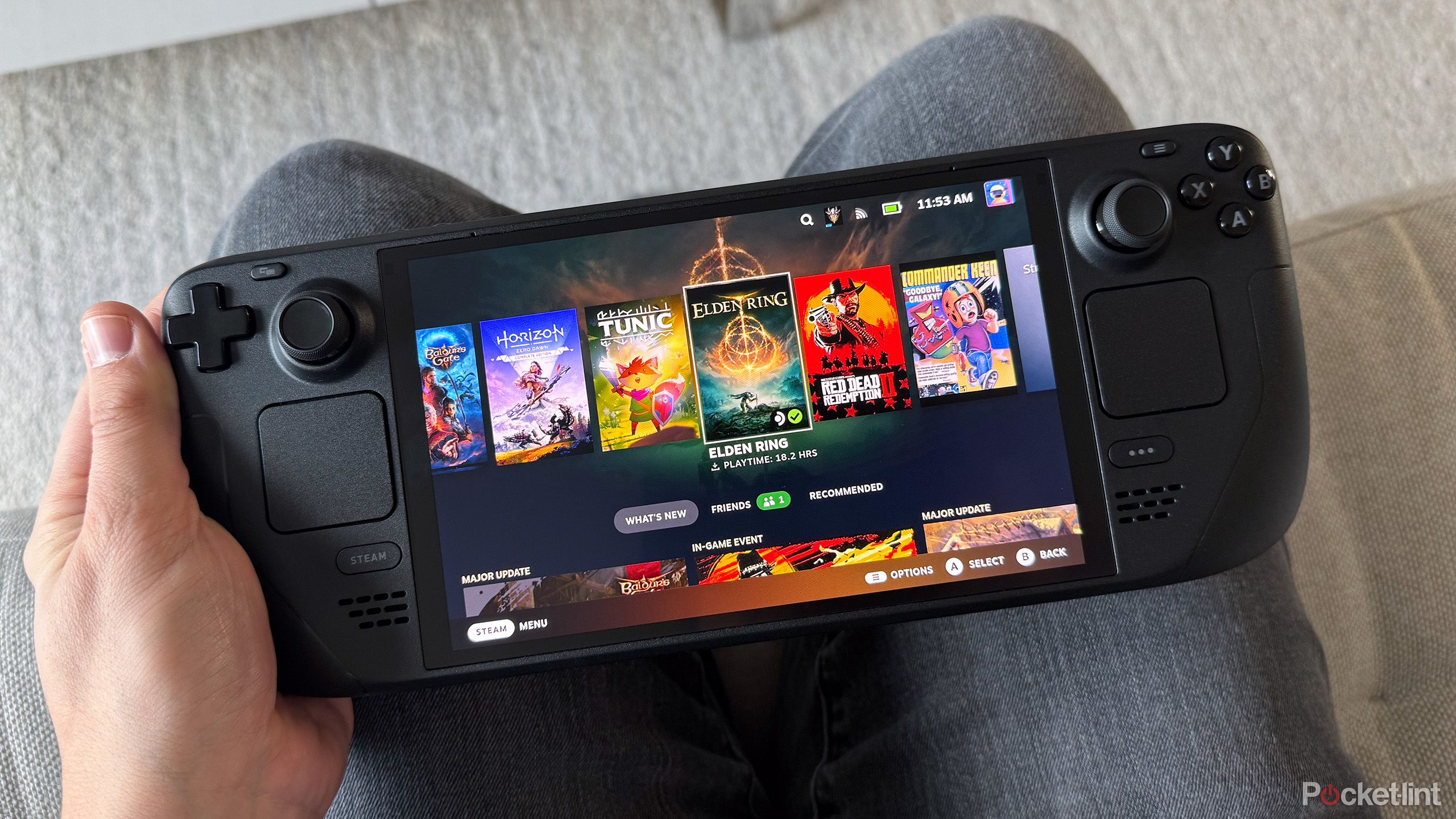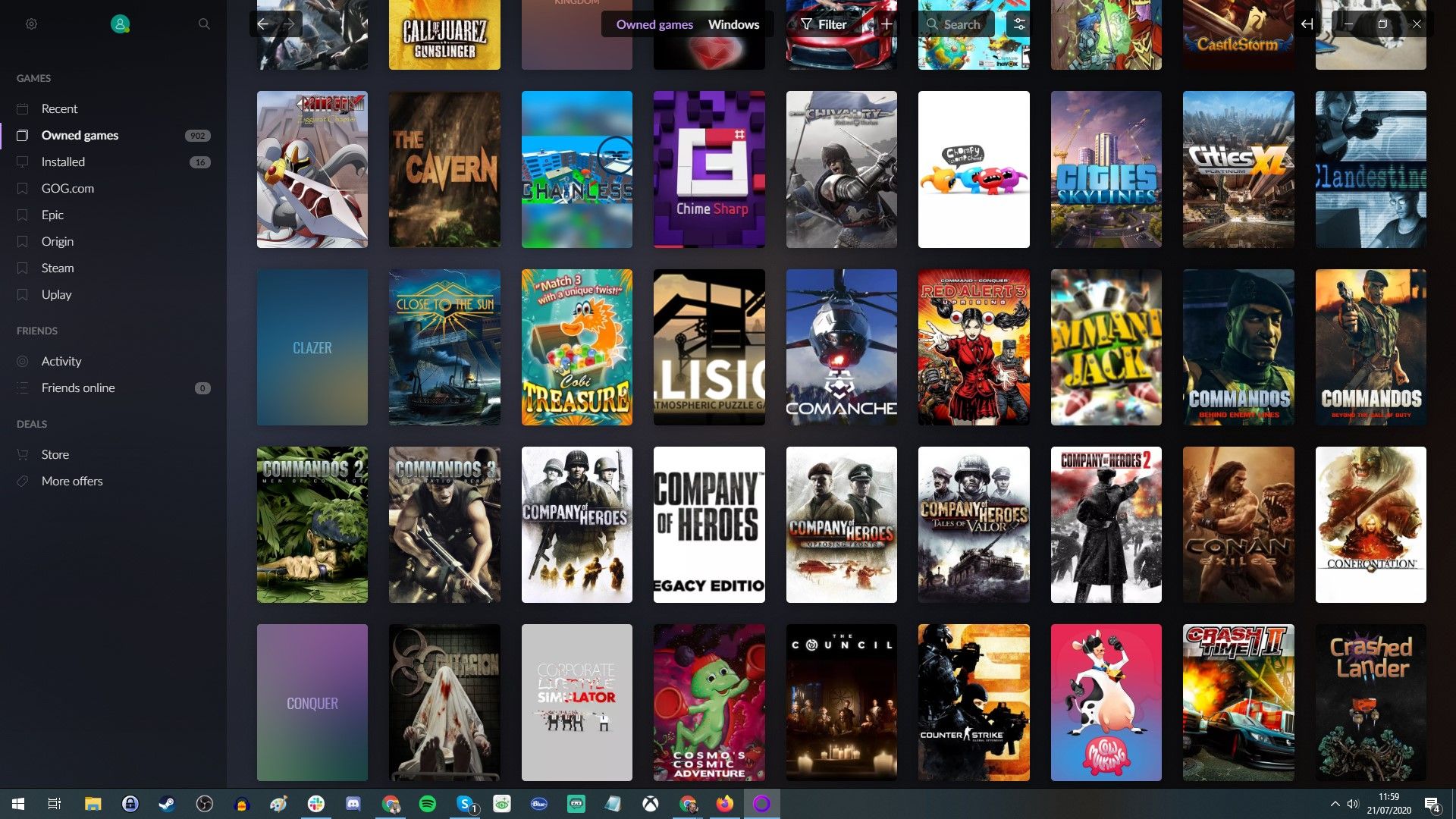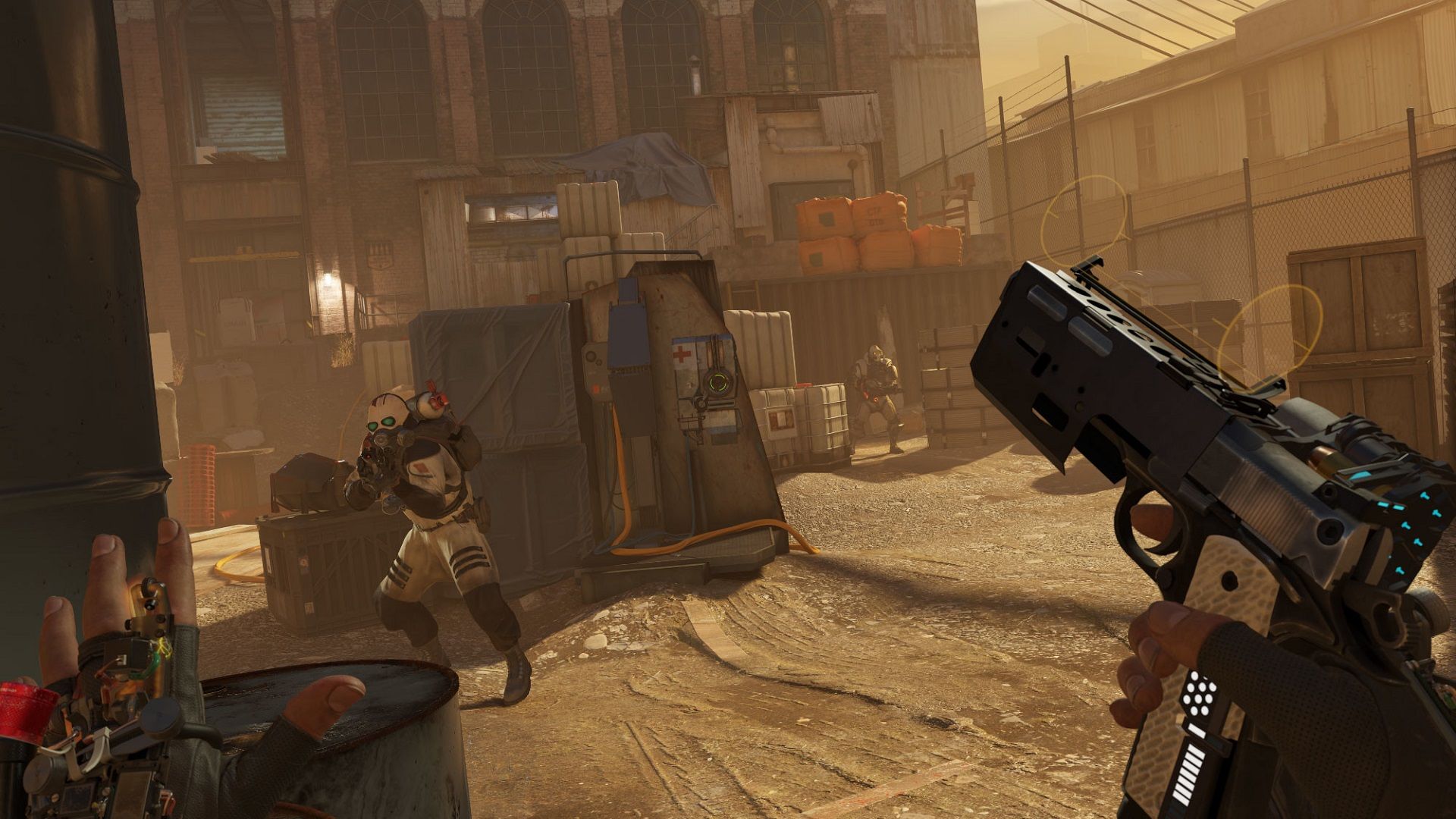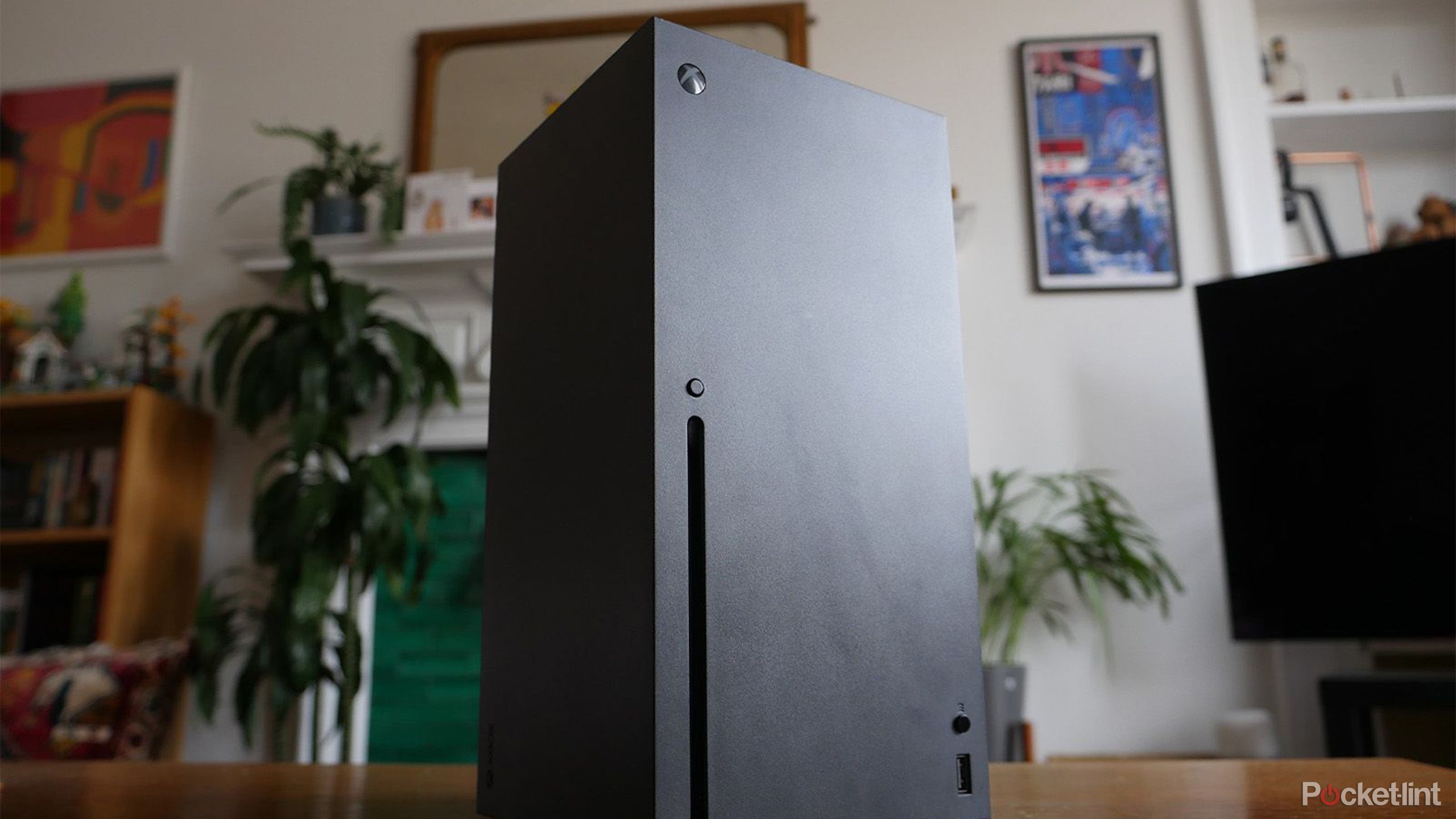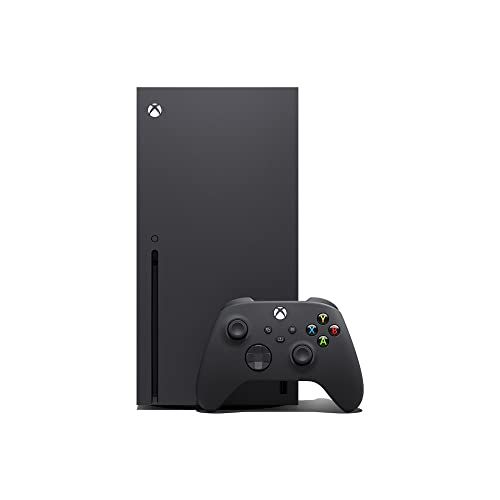Key Takeaways
- PCs offer a cost-effective alternative to consoles through cost-to-performance ratios.
- Handheld PCs or desktop options provide versatility for portable gaming and home use.
- PCs provide access to more game services, discounts, and offer superior control for certain genres.
Eons ago, back in the ’80s and early ’90s, it was often taken for granted that consoles were the best choice for gaming. Getting a gaming PC usually meant building one yourself at high cost, and when you were done, you still had to know your way around arcane concepts like memory managers and IRQs. Sure, there were titles that were better on a PC or simply impossible on a console, but if you wanted an affordable, plug-and-play gaming experience, you were buying an SNES or PlayStation.
Fast-forward a few decades and the situation is radically different. The Xbox Series X is still a worthwhile purchase, but thanks in part to work by Microsoft itself, a lot of gamers may legitimately want to consider a PC instead. There four major reasons why:
Related
Best PC games to buy: Fantastic games to add to your collection
These are the very best PC games on the market right now, for our money.
1 The cost-to-performance ratio
Do more and better
Yes, you can’t find a powerful PC for the same price as a Series X, which is a little under $500 these days before any games or accessories. But you can get remarkably close if you make some strategic choices, and on the flip side, you’ll have something that’s useful beyond gaming. You can’t work from home on an Xbox or run a Plex server on one, after all.
The best choice for cost-conscious gamers is probably a handheld PC, such as a Steam Deck or ASUS ROG Ally. Current handhelds can run most games at reasonable detail — even something like Elden Ring — and of course they’re all-in-one portable systems, so you can play anywhere. The main catch is that if you want to use them for something other than web browsing or portable gaming, you’ll probably want to buy a dock so you can connect a display, keyboard, and mouse.
Another (relatively) low-cost approach may be to buy a desktop PC and use a 4K TV as your screen. 4K is more than sharp enough to read text, and wireless peripherals mean you can sit on the opposite side of the room if you like. You’ll need to make sacrifices to keep the desktop’s cost under $1,000 though, such as picking specs suited for 1080p graphics at average detail, instead of 1440p or 4K with a game’s lighting and texture options cranked.
If you’re willing to go over $1,000, a lot of desktop PCs will decimate an Xbox when it comes to performance. And when a sequel to the Series X comes along, you’ll be able to swap out the parts in your PC to stay on top.
2 Access to more game services (and sales)
Save money in the long run
Xbox Game Pass Ultimate
$45 $50 Save $5
One of the selling points of an Xbox is subscription game access via Game Pass, but that service also exists on PCs — just with its own price tier and catalog. A lot of games appear on both platforms in fact, so you may not be missing much by switching. It depends on the titles that interest you.
Where PCs really win is in offering download stores beyond Microsoft. The biggest of these is Steam, practically the default for PC gaming. There are other alternatives, however, such as the Epic Games Store, GOG, and itch.io. You can use any of these you like, even if it’s usually best to stick to as few as possible.
More storefronts translate into more frequent access to discounts. You’ll always be able to find something fun for $40 or less, possibly below $20 if you’re willing to play something older or by a small indie developer. On an Xbox, you’re limited to whatever sales Microsoft has at a given moment. The PC catalog is also a lot more extensive — some titles date back to the early ’80s, and you’ll find games ported from multiple platforms, such as PlayStation and Mac.
3 Some games are best on a PC
Experience the full scope of gaming
Valve
While consoles have come a long way, a Windows PC is still the best or only choice for some genres. First-person shooters and real-time strategy games gain more precise control with a mouse. You can play Microsoft Flight Simulator on an Xbox, but it’s the only true flight sim the console has. And if you’re into adventure, puzzle, or turn-based strategy games, you’ll discover a lot more of those on PC, some of which would be awkward to play with a gamepad.
Virtual reality is unavailable on any Xbox. That’s mostly Microsoft’s fault, since it hasn’t shown any interest in building a headset. The experience might be better on gaming PCs anyway, however, given their higher performance ceiling. For people who don’t need perfect fidelity, there are a lot of standalone VR games on the Meta Quest 3.
4 The fate of the Xbox is uncertain
Where are we going from here?
Pocket-lint
The PlayStation 5 is trouncing the Series X in sales. Perhaps that is one reason why Microsoft is increasingly attached to the idea of letting you play games on multiple platforms — PC, the cloud, and even PlayStation. There’s no sense cutting off revenue streams, especially if they might attract more Game Pass subscribers.
Will there be a follow-up to the Series X? Almost certainly. Sales aren’t that bad, and many people will still need some sort of device to play Xbox games on their TV. Yet we could be headed towards a future where Xbox is primarily a cloud service, in which case a $500 PC would be just as good for gaming as anything else. We’ll have to see if internet bandwidth — and Microsoft’s servers — will ever make that realistic.
FAQ
Q: Are there still reasons to get an Xbox over a PC?
Yes. The main one is price, but an Xbox is also simpler — once you’ve plugged it in and signed into your account, there’s no worrying about issues like driver updates or malware protection. You’re also getting intuitive controls, which make an Xbox better suited to young kids.
Q: How much should I spend on a gaming PC?
It depends on the sort of games you want to play, the performance you find acceptable, and the level of futureproofing you want.
Any recent PC with a dedicated GPU by AMD or Nvidia will be able to play most 3D games, but cheaper configurations may be limited to 1080p resolution, and/or sub-optimal detail settings if you want acceptable framerates. Whatever you do, avoid PCs that rely exclusively on integrated Intel graphics.
For something impressive that will last a while, plan on spending at least $1,000 for a desktop before adding on peripherals like a monitor, keyboard, and mouse. Systems over $1,500 are entering hardcore territory, but may be worth it if you want a machine that will last as long as possible.
There are some remarkably cheap gaming laptops out there, but expect to spend at least $800 for something relevant, and most likely over $1,000. It’s easy to top $2,000 if you want something that can go toe-to-toe with the latest desktops.
Trending Products

Cooler Master MasterBox Q300L Micro-ATX Tower with Magnetic Design Dust Filter, Transparent Acrylic Side Panel, Adjustable I/O & Fully Ventilated Airflow, Black (MCB-Q300L-KANN-S00)

ASUS TUF Gaming GT301 ZAKU II Edition ATX mid-Tower Compact case with Tempered Glass Side Panel, Honeycomb Front Panel…

ASUS TUF Gaming GT501 Mid-Tower Computer Case for up to EATX Motherboards with USB 3.0 Front Panel Cases GT501/GRY/WITH Handle

be quiet! Pure Base 500DX ATX Mid Tower PC case | ARGB | 3 Pre-Installed Pure Wings 2 Fans | Tempered Glass Window | Black | BGW37

ASUS ROG Strix Helios GX601 White Edition RGB Mid-Tower Computer Case for ATX/EATX Motherboards with tempered glass, aluminum frame, GPU braces, 420mm radiator support and Aura Sync

CORSAIR 7000D AIRFLOW Full-Tower ATX PC Case – High-Airflow Front Panel – Spacious Interior – Easy Cable Management – 3x 140mm AirGuide Fans with PWM Repeater Included – Black


